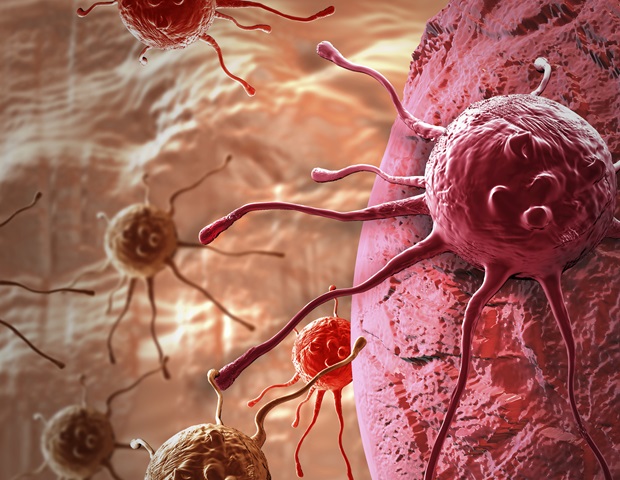In a research printed in Cell Stories Drugs, a gaggle of Chinese language scientists revealed the oncometabolite function of progesterone in superior prostate most cancers and methods to remove its oncogenic impact as a facet of prostate most cancers remedy.
Androgen sustains the event of prostate most cancers. Though androgen deprivation remedy and abiraterone remove the technology of androgen, illness development continues to be inevitable.
On this research, a analysis staff led by LI Zhenfei of the CAS Middle for Excellence in Molecular Cell Science of the Chinese language Academy of Sciences investigated alteration within the metabolomics of abiraterone-resistant sufferers and located that one metabolite-;progesterone-;elevated considerably. Transient remedy with excessive doses of progesterone will activate a number of pathways to advertise the proliferation of most cancers cells. Lengthy-term remedy with progesterone at a low dosage will improve the expression of GATA2, leading to an irreversible alteration within the transcriptome that promotes illness development.
Additionally they investigated the metabolic pathway of progesterone. They recognized the enzyme 3bHSD1 as a possible therapeutic goal for eliminating the technology of progesterone. Particularly, they found that biochanin-A, wealthy in isoflavones in soy and different meals, is a 3bHSD1 inhibitor and suppresses prostate most cancers improvement.
Primarily based on the oncogenic results of progesterone, plasma progesterone ranges have been discovered to be negatively correlated with the period of abiraterone remedy. Thus, progesterone is perhaps a possible predictive biomarker for abiraterone response and associated scientific analysis is in progress.
In abstract, the outcomes of this research exhibit that biochanin-A inhibits 3bHSD1, thus eliminating the oncogenic results of progesterone and suppressing the event of prostate most cancers.
WU Denglong’s staff from Tongji College-affiliated Tongji hospital and TANG Huiru’s staff from Fudan College additionally participated within the research.
sources:
Chinese language Academy of Sciences Headquarters
Journal reference:
Hou, Z., et al. (2022) Inhibiting 3bHSD1 to remove the oncogenic results of progesterone in prostate most cancers. Cell Stories Drugs. doi.org/10.1016/j.xcrm.2022.100561.

